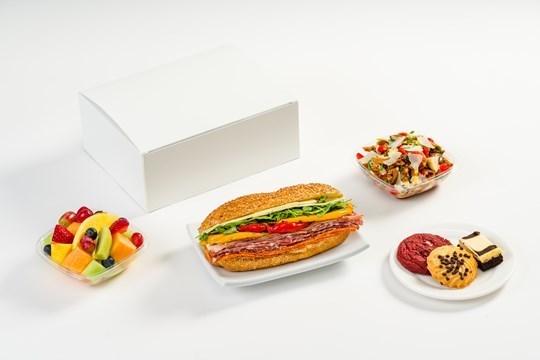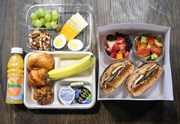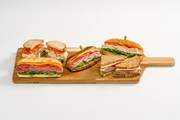Importance of Quality Catering for Corporate Events
One of the crucial aspects of corporate event catering is how it reflects professionalism and attention to detail. The choice of caterer and the quality of the food and service provided can significantly impact the overall perception of the event. When guests experience well-executed catering, it conveys a sense of sophistication and care in every detail. From the presentation of the dishes to the taste and quality of the ingredients, professional catering sets a high standard for the event.
Moreover, attention to detail in catering can be seen in various aspects, such as the seamless coordination of the menu with the theme of the event, the timely service of courses, and the consideration of dietary restrictions and preferences of attendees. A caterer who pays attention to these finer points demonstrates a commitment to delivering a top-notch experience for guests.
In the corporate world, where impressions matter greatly, professionalism in catering can leave a lasting impact on clients, partners, and employees alike. It signals that the host organization values excellence and precision in all aspects of its operations, including event planning and execution. Ultimately, the attention to detail in corporate event catering goes beyond just providing food; it is a reflection of the organization's commitment to creating memorable and impressive gatherings that reflect positively on its brand and reputation.
Quality catering at corporate events plays a crucial role in enhancing the overall experience for attendees. When guests are treated to delicious and beautifully presented food, it not only satisfies their taste buds but also leaves a lasting impression. Good food can set the tone for the entire event, creating a welcoming and enjoyable atmosphere where participants can network, engage in discussions, and build relationships.
Catering done right adds a touch of sophistication and professionalism to the event, showing that the hosts have gone the extra mile to ensure a memorable experience for their guests. Well-presented dishes and attentive service make attendees feel valued and appreciated, contributing to a positive perception of the company hosting the event. Furthermore, high-quality catering can elevate the ambiance of the venue, transforming a simple gathering into a classy and upscale affair.
Moreover, quality catering is not just about the taste of the food but also about the overall presentation and service. Attention to detail in the way the food is served, the creativity in menu selection, and the professionalism of the catering staff all contribute to creating a memorable experience for attendees. When guests leave with a positive impression of the catering, they are more likely to remember the event fondly and speak positively about their experience, which can have a lasting impact on the reputation of the company hosting the event.
In essence, investing in quality catering for corporate events is not just about satisfying hunger; it is about creating a holistic experience that delights the senses, fosters connections, and leaves a lasting impression on attendees.
Factors to Consider When Selecting a Caterer
When selecting a caterer for a corporate event, it is crucial to prioritize their experience in handling such occasions. Catering for corporate events comes with its own set of unique challenges and requirements that differ from other types of events. A caterer with experience in catering for corporate events will be well-versed in managing large groups of attendees, understanding the specific needs of corporate clients, and delivering a level of service that aligns with the professional atmosphere of such events.
Experience in handling corporate events also extends to the ability to work within the constraints of a corporate environment. This includes being familiar with corporate event protocols, such as timing constraints, adherence to corporate branding guidelines, and the need for efficient and discreet service. A caterer who is experienced in catering for corporate events will understand the importance of maintaining a professional demeanor at all times and will have the expertise to navigate any last-minute changes or unexpected challenges that may arise during the event.
In addition, an experienced caterer will have a portfolio of past corporate events they have catered, showcasing their ability to meet the high standards and expectations of corporate clients. They will have a proven track record of delivering quality food and service that enhances the overall experience for attendees and reflects positively on the hosting company. Ultimately, choosing a caterer with experience in handling corporate events can contribute significantly to the success and smooth execution of your corporate event.
Menu customization is a crucial aspect when selecting a caterer for a corporate event. Offering menu customization options allows companies to tailor the food selection to meet the specific needs and preferences of their guests. This customization can range from accommodating dietary restrictions such as vegetarian, vegan, gluten-free, or food allergies to aligning the menu with the theme or purpose of the event.
Experienced caterers understand the importance of menu customization and work closely with clients to create a personalized dining experience. They may offer a variety of menu options, from buffet-style service to plated dinners, and are flexible in adapting the menu based on feedback and requests from the event organizers. Moreover, menu customization allows companies to showcase their brand identity through food choices, presentation, and even custom-branded packaging.
By collaborating with a caterer that offers menu customization options, companies can ensure that their corporate event not only provides delicious and high-quality food but also conveys a sense of thoughtfulness and attention to detail. This attention to customization enhances the overall guest experience and contributes to the success of the event.
When selecting a caterer for a corporate event, it is crucial to consider their ability to accommodate dietary restrictions and special requests. In today's diverse workplace, attendees may have various dietary needs, including allergies, intolerances, or specific preferences. A professional caterer should demonstrate flexibility and expertise in tailoring menus to meet these requirements.
Accommodating dietary restrictions involves more than just offering a few alternative dishes. A skilled caterer will understand the importance of preventing cross-contamination, ensuring that individuals with allergies can safely enjoy the food provided. They should have protocols in place to carefully prepare, store, and serve dishes to avoid any adverse reactions.
Moreover, special requests from attendees should be taken seriously and handled with care. Whether it's a preference for vegan options, kosher meals, or specific cultural dishes, the caterer should be willing to work closely with the event organizers to create a customized menu that satisfies everyone's needs.
Clear communication between the event organizers and the caterer is key to successfully accommodating dietary restrictions and special requests. Providing detailed information about attendee requirements well in advance allows the caterer to plan accordingly and source ingredients appropriately. A professional caterer will be proactive in seeking clarification if needed and will strive to exceed expectations when it comes to food quality and service.
In summary, the ability to accommodate dietary restrictions and special requests is a vital aspect of corporate event catering. By partnering with a caterer that demonstrates a commitment to meeting these needs with professionalism and attention to detail, event organizers can ensure that all attendees are well taken care of and can fully enjoy the culinary experience provided.
Planning the Menu for Your Corporate Event
When planning the menu for a corporate event, it is essential to consider the diverse preferences and dietary requirements of the attendees. Offering a variety of options ensures that all guests can find something to enjoy, regardless of their taste preferences or restrictions. Incorporating a range of dishes from different cuisines can cater to various tastes and cultural backgrounds, making the event more inclusive and appealing to a wider audience.
Moreover, providing options for different dietary needs, such as vegetarian, vegan, gluten-free, or dairy-free choices, demonstrates attentiveness and consideration for all guests. By offering a diverse selection of menu items, you can accommodate a range of preferences and ensure that everyone feels valued and well taken care of during the event.
In addition to the main dishes, it is also important to include a variety of appetizers, desserts, and beverages to cater to different preferences and occasions. For example, having both savory and sweet options for dessert ensures that guests with different taste preferences can enjoy a satisfying end to their meal. Similarly, offering a selection of non-alcoholic and alcoholic beverages allows guests to choose according to their preferences and dietary restrictions.
Overall, providing a variety of menu options doesn't just cater to different tastes—it also showcases your attention to detail and commitment to creating a memorable and enjoyable experience for all attendees.
When planning the menu for a corporate event, it is essential to ensure that it is well-balanced to accommodate various dietary restrictions that attendees may have. A balanced menu should include a diverse range of options that cater to different dietary needs, such as vegetarian, vegan, gluten-free, and other specific dietary requirements.
To achieve a balanced menu, it is important to work closely with the caterer to develop a selection of dishes that can meet the dietary preferences and restrictions of all guests. This may involve offering a mix of protein-rich dishes, plant-based options, gluten-free alternatives, and dairy-free alternatives to ensure that there is something for everyone to enjoy.
Incorporating a variety of flavors, textures, and cooking styles into the menu can also help ensure that guests with dietary restrictions do not feel limited in their choices. Providing clear labeling or descriptions of each dish can help guests identify which options are suitable for their dietary needs, allowing them to navigate the menu with ease.
Moreover, offering alternatives or substitutions for certain ingredients can accommodate specific dietary restrictions without compromising on flavor or quality. This thoughtful approach to menu planning demonstrates a commitment to inclusivity and guest satisfaction, enhancing the overall dining experience for all attendees.
By prioritizing a balanced menu that accommodates dietary restrictions, event organizers can ensure that all guests feel welcome and well-catered to, promoting a positive and memorable experience for everyone in attendance.
When planning the menu for your corporate event, it is crucial to offer a well-rounded selection of food and beverage options to cater to diverse preferences and dietary needs.
Starting with a variety of appetizers is a great way to set the tone for the event and keep attendees satisfied before the main courses. Consider including a mix of hot and cold appetizers, such as mini sliders, bruschetta, shrimp cocktail, and vegetable crudités with dips. These small bites are not only delicious but also encourage networking and socializing among guests.
Moving on to the main courses, it is essential to provide a range of options to accommodate different tastes and dietary restrictions. Offer a balance between meat, poultry, seafood, and vegetarian dishes to ensure that all attendees can find something they enjoy. Consider serving buffet-style or plated meals depending on the formality of the event and the preferences of your guests.
When it comes to desserts, it's important to end the meal on a sweet note. Include a mix of indulgent treats like mini pastries, cakes, and fresh fruit platters to satisfy everyone's sweet tooth. Providing a dessert station with a variety of options allows guests to choose their favorites and enjoy a sweet ending to the evening.
Lastly, beverages play a significant role in enhancing the overall dining experience at a corporate event. Offer a selection of non-alcoholic and alcoholic drinks, including soft drinks, juices, water, wine, beer, and cocktails. Consider providing a signature drink that reflects the theme of the event or the company's branding to add a personalized touch to the experience.
By including a diverse range of appetizers, main courses, desserts, and beverages in your corporate event catering menu, you can ensure that all attendees are well-fed, satisfied, and impressed by the attention to detail and quality of the catering service provided.
Tips for a Successful Catered Corporate Event
When it comes to ensuring a successful corporate event catering experience, clear communication with the caterer about expectations is paramount. By establishing open and transparent dialogue from the outset, you can convey your specific needs, preferences, and any essential details that can impact the catering service. Clearly outlining the event agenda, theme, dietary requirements, and desired ambiance will enable the caterer to tailor their services to meet your exact specifications. Additionally, discussing logistical aspects such as setup time, service duration, and guest flow will help the caterer plan accordingly and ensure seamless execution on the day of the event. Effective communication also involves discussing budget constraints, any potential challenges or restrictions, and outlining the desired level of service and presentation style. By proactively addressing all aspects of the catering service through clear communication, you can establish mutual understanding and alignment between your expectations and the caterer's capabilities, ultimately contributing to a flawless and enjoyable catering experience for your corporate event.
Confirming the final headcount for your corporate event is essential to ensure that the catering service can adequately prepare and deliver the right amount of food to meet the needs of all attendees. This step helps prevent food wastage while ensuring that every guest is well-fed and satisfied.
In addition to confirming the headcount, it is crucial to be prepared for any last-minute changes that may arise. As the event date approaches, unforeseen circumstances such as cancellations or unexpected additions to the guest list can occur. Communicating these changes promptly to the caterer allows them to adjust the quantities and menu accordingly, ensuring that no guest is left without a meal.
By staying organized and proactive in confirming the final headcount and addressing any last-minute changes, you demonstrate professionalism and consideration for both your guests and the catering team. This attention to detail contributes to a seamless and successful catering experience, leaving a positive impression on attendees and facilitating a memorable corporate event.
Coordinate with the venue for setup and logistics is a crucial aspect of successful corporate event catering. Ensuring seamless coordination with the venue staff can help avoid any last-minute issues and guarantee that the catering setup aligns with the overall event layout. It is essential to communicate with the venue regarding specific requirements such as space for food stations, access to electricity for warming trays or equipment, and any restrictions on food and beverage service.
Additionally, discussing logistical details such as delivery times, access points for catering staff, and cleanup procedures is vital. By collaborating with the venue management early on, you can address any potential challenges and make necessary arrangements to facilitate a smooth catering operation on the day of the event. Effective coordination with the venue also enables the catering team to work efficiently and maintain a high standard of service throughout the event.
Moreover, establishing clear channels of communication with the venue staff can help resolve any issues promptly and ensure that all parties involved are aligned on the event timeline and setup requirements. By fostering a collaborative relationship with the venue, you can create a conducive environment for successful catering execution, ultimately contributing to a memorable and seamless corporate event experience for all attendees.
Enhancing the Catering Experience
Live cooking stations or food displays can add an interactive element to your corporate event catering, engaging attendees and enhancing their overall dining experience. These stations not only provide a visual appeal but also allow guests to interact with the chefs, creating a sense of excitement and anticipation. Watching the preparation of dishes in real-time can be both entertaining and educational, offering a unique insight into the culinary process.
By incorporating live cooking stations, you can cater to a variety of preferences and dietary restrictions as guests can customize their dishes on the spot. It also adds a touch of personalization to the event, making attendees feel more involved and valued. Additionally, the aroma of freshly cooked food wafting through the venue can stimulate appetites and create a warm and inviting atmosphere.
Food displays are another innovative way to elevate the catering experience at corporate events. Displaying a visually appealing array of dishes not only serves a practical purpose by making it easy for guests to see the available options but also adds a decorative element to the overall ambiance. A well-curated food presentation can be a talking point among attendees and leave a lasting impression.
Overall, incorporating live cooking stations or food displays in your corporate event catering can turn a simple meal into a memorable culinary experience. It demonstrates attention to detail, creativity, and a commitment to providing guests with a top-notch dining experience that goes beyond just satisfying hunger. Such interactive elements can set your event apart and leave a positive impression on attendees, making it an occasion to remember.
Incorporating branding into the food presentation at corporate events is a strategic way to reinforce the company's identity and leave a memorable impression on attendees. By creatively incorporating logos, colors, or other brand elements into the presentation of food items, caterers can help enhance brand visibility and recognition among event guests.
One effective way to incorporate branding is through custom food displays or garnishes that feature the company's logo or color scheme. For example, using edible prints or stencils to add the company's logo onto desserts or garnishes can add a unique touch to the food presentation. This subtle branding technique not only reinforces brand awareness but also adds a level of sophistication to the overall catering setup.
Another approach to incorporating branding into food presentation is through the use of branded serving ware or packaging. Serving food in branded trays, plates, or containers can create a cohesive and professional look that aligns with the company's branding. Additionally, using custom napkins, utensils, or other serving accessories that feature the company's logo can further reinforce brand consistency throughout the event.
Moreover, incorporating branding elements into the food presentation can help create a cohesive theme that ties in with the overall event decor and messaging. By working closely with the caterer to align the food presentation with the event's branding strategy, companies can deliver a seamless and impactful experience that resonates with guests.
Overall, incorporating branding into the food presentation is a subtle yet effective way to reinforce the company's identity and create a memorable experience for attendees. By integrating brand elements thoughtfully and creatively into the catering setup, companies can enhance brand visibility, leave a lasting impression, and elevate the overall corporate event experience.
To ensure continuous improvement in your corporate event catering, gathering feedback from attendees is essential. Feedback provides valuable insights into their experience, preferences, and areas for enhancement. Implementing various feedback mechanisms such as surveys, comment cards, or post-event interviews allows you to collect diverse perspectives. Analyzing this feedback enables you to identify strengths and areas needing improvement in the catering services provided. Positive feedback highlights elements that resonated with attendees, guiding you on maintaining those aspects in future events. Conversely, constructive criticism helps pinpoint areas that may require adjustments, whether in menu offerings, service quality, or overall presentation. Acknowledging and acting upon feedback demonstrates a commitment to enhancing the catering experience and meeting attendees' expectations. Additionally, engaging with attendees post-event fosters a sense of inclusivity and shows that their opinions are valued. By consistently gathering and incorporating feedback, you can refine your corporate event catering services, ensuring each event surpasses expectations and leaves a lasting positive impression on attendees.




